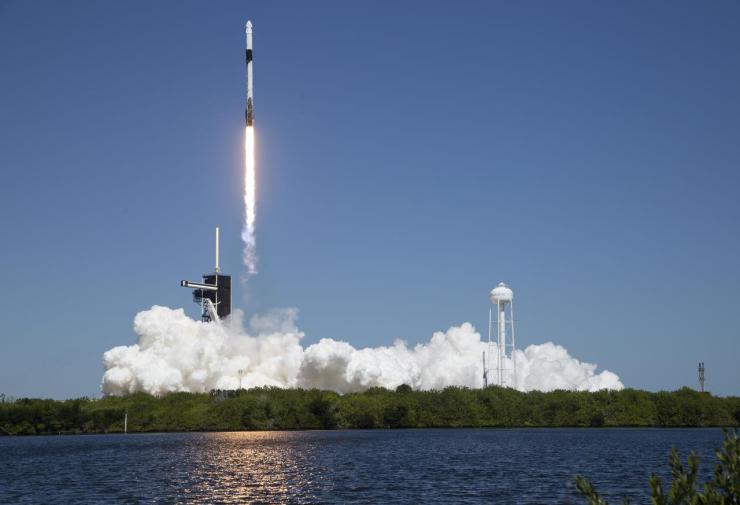Current and On-going Solicitations
The Translational Research Institute for Space Health offers multiple funding mechanisms with variable solicitation methods, funding amounts, durations and review cycles. TRISH's research priorities include commercial space health research (EXPAND), medical system architecture (HERMES) and tissues-chips (SENTINEL). View our current solicitations below.
Direct Intracranial Pressure Monitoring

TRISH is seeking proposals to solutions for real-time direct measurement of intracranial pressure (ICP) in crew during commercial spaceflight. Selected project(s) will be part of the Institute's Enhancing eXploration Platform and ANalog Definition (EXPAND) Program.
Proposals must also include ways to estimate intracranial pressure using methods that are not invasive to the crew. These estimations will be used as a benchmark against historical methods with the goal of understanding their validity.
Methods for direct ICP measurement can help TRISH determine what role, if any, changes in ICP during spaceflight plays in Spaceflight Associated Neuro-ocular Syndrome (SANS), a major concern for human spaceflight.
A pre-proposal briefing for this solicitation will be held at 2 p.m. ET on April 10. Register here. A recording of the webinar will be available alongside the solicitation.
The deadline to submit proposals is 11:59 p.m. ET on May 15, 2025.
Looking to collaborate with other investigators and healthcare professionals on direct ICP research? Join our ICP Collaboration Network to meet other experts from around the world.
EXPAND Exploratory Studies
TRISH is seeking scientific studies for potential implementation in commercial spaceflight. This solicitation is part of TRISH’s EXPAND Program. Working with commercial spaceflight providers and their passengers, EXPAND collects pre-, in-, and post-flight health data from multiple commercial spaceflights.
Proposals for this solicitation focuses on two topics:
- Exploratory Science: This topic seeks new hypothesis-driven scientific studies to enable safe and successful human space travel.
- Technology Demonstrations: This topic seeks successful, mature ground technologies or interventions that would benefit from demonstration in spaceflight.
A pre-proposal webinar for this solicitation will be held on March 19 at 2 p.m. ET. Register here.
The deadline to submit Step-1 proposals for this solicitation is April 16, 2025 at 11:59 p.m. ET.
The Catalyst Grants Program

TRISH's Catalyst Grant Program offers a streamlined method for carrying out proof-of-concept projects, directed technology developments that address critical needs in space health, maturation of promising concepts with strong preliminary findings, and innovative projects that present opportunities outside of regularly scheduled solicitation cycles.
Any project that addresses the NASA Human Research Roadmap (HRR) and the TRISH initiatives may be proposed. However, TRISH has identified three topic areas of high interest, each encompassing several sub-topics.
Proposals addressing these subjects will receive higher priority:
- Advancing technology to support remote crew health and performance monitoring
- Advancing remote healthcare knowledge base
- Advancing remote research capabilities
Funds are fully obligated. TRISH will continue to accept and screen any Step-1 proposals. We may invite Step-2 proposals but these proposals are at risk as a result of budget availability.
International Collaborations
As a federally funded institute, TRISH supports research projects led by investigators currently at U.S.-based institutions. However, to foster an environment for collaboration, TRISH encourages international investigators and organizations to connect by adding themselves to our Researchers Open to Collaboration document. There, you can find potential collaborators as well as add your name, institution and contact information for other potential collaborations with the wider space biomedical community.
Subscribe to the TRISH Newsletter for future funding opportunities.








 Credit
Credit

